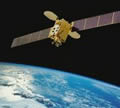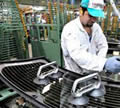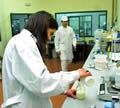- Reunión inter-regional de expertos sobre la medición de la cooperación Sur-Sur
- La SEGIB lanza newsletter con nuevas historias sobre cooperación sur-sur y triangular
- ¿Cuál es el valor de las universidades públicas hoy en Argentina?
- Una cumbre empresarial entre Corea del Sur y América Latina tendrá lugar esta semana
- Cuba en la Cooperación Sur-Sur: el camino para la integración
- Good Practices in South-South and Triangular Cooperation for Sustainable Development – Volume 4
- Global South-South Development Expo 2022 Concept Note
- Cooperación Sur-Sur en América Latina en tiempos de pandemia
- Valoración de la cooperación Sur-Sur en seis países seleccionados de América Latina y el Caribe: desafíos compartidos en la implementación de la Agenda 2030 para el Desarrollo Sostenible
- Desarrollo en transición: propuesta de concepto y medición para una cooperación renovada en América Latina y el Caribe
With Argentina and Beijing cementing their partnership in the Silk Road Initiative and Beijing supporting Argentina's Falklands claim, the Middle kingdom's infiltration into Latin America is undoubtedly evident.
Often dubbed as a South-South model of cooperation, the ever-increasing economic asymmetry between the two nations tells a different story. The traditional relations between Buenos Aires and Beijing are centered around trade, but over the years, Beijing has expanded its sphere of influence in entire South America, especially Argentina.
Multiple facets have been added to their bilateral relationship:
Trade
Sino-Argentine trade has grown immensely in the past 20 years. Recently, China has surpassed Brazil as Argentina's largest trading partner. Initially driven by Soy and Beef exports, the bilateral relations have expanded to Beijing being involved in various joint development projects in the region.
According to OEC, the exports of Argentina to China have increased at a rate of 13.5% and exports of China to Argentina have increased at a rate of 12.3%. Beijing principally imports soy, minerals, and other items while exporting a wide range of higher value-added Chinese goods and services.
Infrastructure
Over the years, Beijing has shifted from traditional local markets and has expanded its presence in Argentina through heavily financing the latter's infrastructure requirements. Argentina has received Chinese funds for a total of 11 projects ranging from railways and dams to solar power and nuclear power plants.
Argentina has been in a financial crisis for a very long time. The President of Argentina feels that a closer alliance with China will allow it to strengthen its monetary reserves and promote new infrastructure projects in the country.
Beijing is financing the Santa Cruz Hydroelectric Project, a $4.7 billion dam project which at present is in limbo but is expected to employ over 2500 citizens once started. It is also funding and providing technical support to one of South America's largest solar farm projects, Cauchari. This strengthens China's position in the race for being a global leader in clean-energy technology, a title India is also contesting for.
Recently, Argentina became the newest entrant to China's Belt and Road Initiative, an ambitious infrastructure project to expand China's economic and political influence by financing infrastructure projects around the globe. The ground was laid back in 2017 when Xi called the region a "natural extension" of the BRI's maritime route.
Analysts believe joining the BRI could attract more Chinese investment in sectors such as alternative energy and national and regional projects such as financing for railways and roads for intra-country and inter-country connection.
Agriculture
The relationship between the two nations has been facing issues when it comes to Agriculture. Beijing began its expansion by attempting to buy large swaths of land in the Patagonia region. After persistent apprehensions and heightened outrage by Argentinian environmental groups and constitutional experts, it gradually moved to ventures with existing agribusinesses in the region such as Noble Group Ltd and Nidera. China is developing itself as a dominant agricultural trading house and entering into ventures like these is a step in that direction.
Argentinian Pork has emerged as a significant trading commodity, next to Soy, after the African swine fever (ASF) outbreak in China affected its domestic pork industry. This has led to China's ambition of turning Argentina into one of China's main pork suppliers. The plan is to transform Argentina into a pork powerhouse with the installation of 25 hog farms through Chinese investments amounting to a whopping $3.5bn investment.
But this also has been met by enormous protests by the local Argentinian environmentalists who this move as a recipe for disaster. According to biologist Guillermo Folguera, "China is outsourcing the risk of a repetition of outbreaks such as ASF by moving production offshore."
Lithium
Argentina is a part of the "lithium triangle" and becomes extremely important for China to meet its domestic needs.
Recently, Chinese mining firm Zijin Mining Group Co Ltd has announced that it will invest $380mn to construct a lithium carbonate plant in Argentina. Termed as "white gold", Lithium is critical for the production of electric car batteries.
According to Benchmark Mineral Intelligence (BMI), as sales of electric vehicles (EV) are increasing in China, demand from EV battery manufacturers has increased manifold, pushing the price of lithium carbonate in China to a record high of $41,925 per tonne. This sudden increase in demand has resulted in Beijing's interest in Argentina's lithium reserves.
China is also diversifying its investments in other minerals such as gold and copper, and maybe even silver and uranium, in the future.
Defense
Argentina's strategic position as a gateway for China to strengthen its influence in the region is another factor for China's increased bilateral efforts.
In recent years China has affirmed itself as a significant player in the global arms trade, and Latin America happens to be an important market for Chinese military hardware. In 2015, Argentina's then-President Christina Fernández de Kirchner announced her government's intention to purchase Chinese weapon systems to the tune of approximately $1 billion. According to Evan Ellis, "Chinese arms companies, such as the Aviation Industry Corporation of China (AVIC), China Shipbuilding Industry Corporation (CSIC), China National Electronics Import & Export Corp (CEIEC) and China's North Industries Corporation (NORINCO) have expanded their position in Latin America and the Caribbean arms markets."
With the Peronists returning to power in 2019, the government is discussing possible acquisitions of a series of defense equipment including JF-17 fighter jets, for which China is willing to go for joint production and sharing of its technology.
China is also eyeing to bag the tender for the construction of a polar logistics ship that Argentina wishes to build to support the maintenance and resupply of Argentine stations on Antarctica from Ushuaia.
5G
The Chinese firm, Huawei, set up its first Argentine branch in 2001 and since then has been dominating the telecommunication sector in Argentina, employing over 500 employees. Huawei also happens to be one of the global leaders in 5G technology and has plans to build Argentina's 5G network.
While major countries like the USA and UK have barred Huawei, citing security fears, Argentina is holding talks with the telecommunication giant as it explores its options for the adoption of advanced 5G technology.
Space
China has also demonstrated an enormous presence in Argentina's space sector. In 2015, China received the approval to establish a space monitoring and tracking station in Argentina's Neuquén province. The project has repeatedly come under scrutiny with accusations of it being an opaque agreement.
While Beijing has repeatedly dismissed the accusations of security threat and reiterated that the space station is aimed at peaceful space exploration, U.S. defense officials have raised concerns that the Chinese military can monitor and possibly target U.S. and allied satellites.
According to Argentinian international analyst, Felipe de la Balze," The base could compromise Argentina's international relations." It is an agreement that limits Argentina's sovereign control over its land, provides tax exemptions, and enables the unrestricted movement of Chinese laborers who are bound by Chinese law. Moreover, Patagonian deep space station is managed by the China Satellite Launch and Tracking Control General (CLTC). The CLTC reports to the PLA's Strategic Support Force.
China Great Wall Industry Corporation (CGWIC) along with Argentine company, Satellogic, announced its plan to launch 90 satellites to create an Earth-observing constellation.
Conclusion
As can be seen from the above-mentioned examples, Chinese penetration into Argentina has moved past traditional economic engagements. With the return of the Peronist government, the ties are assumed to become stronger as the focus is on growth-focused policies.
The dragon has reached Washington's backyard, and it seems, there's little that the USA can do to stop the growing political, economic and strategic engagement that we're witnessing. While greater engagement means more development for Argentina, it also brings security concerns and contests for influence in the South American region. As noted by US Secretary of State Rex Tillerson, "Latin America does not need new imperial powers that seek only to benefit their people."































